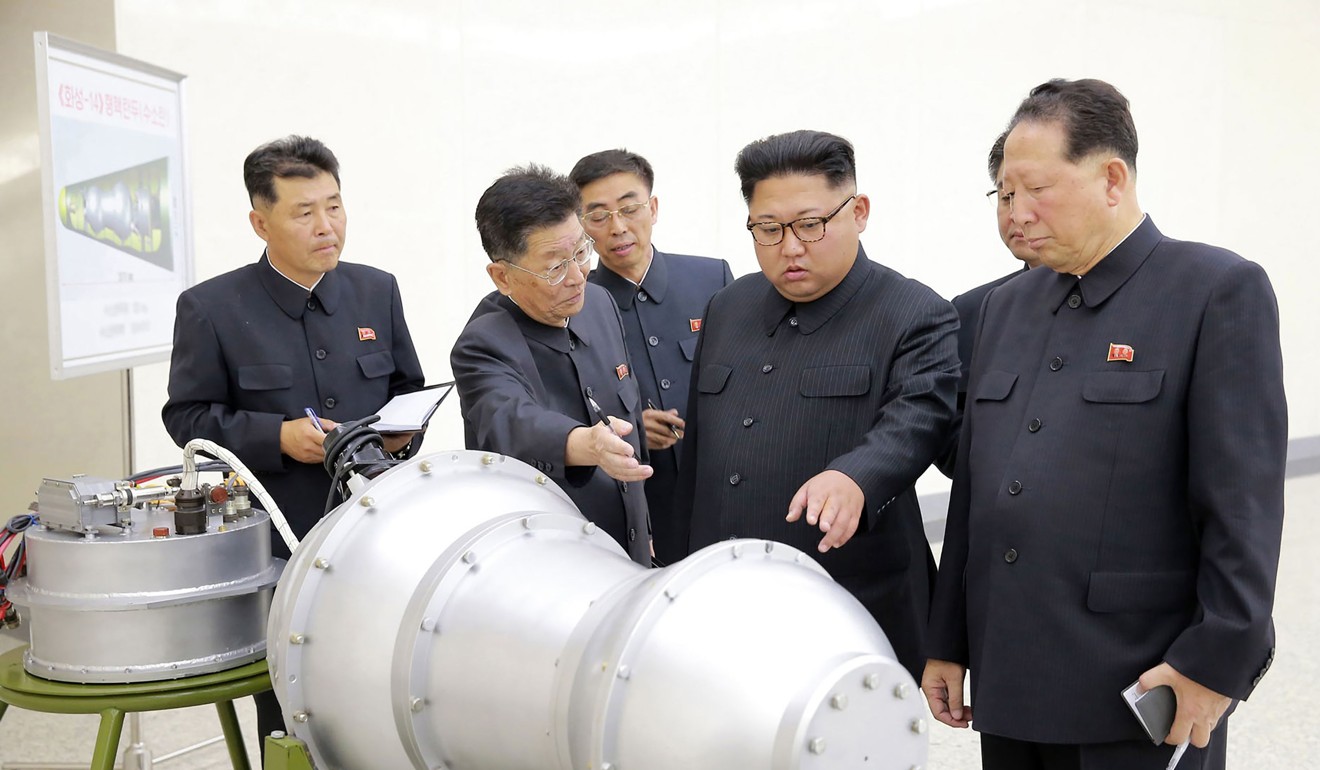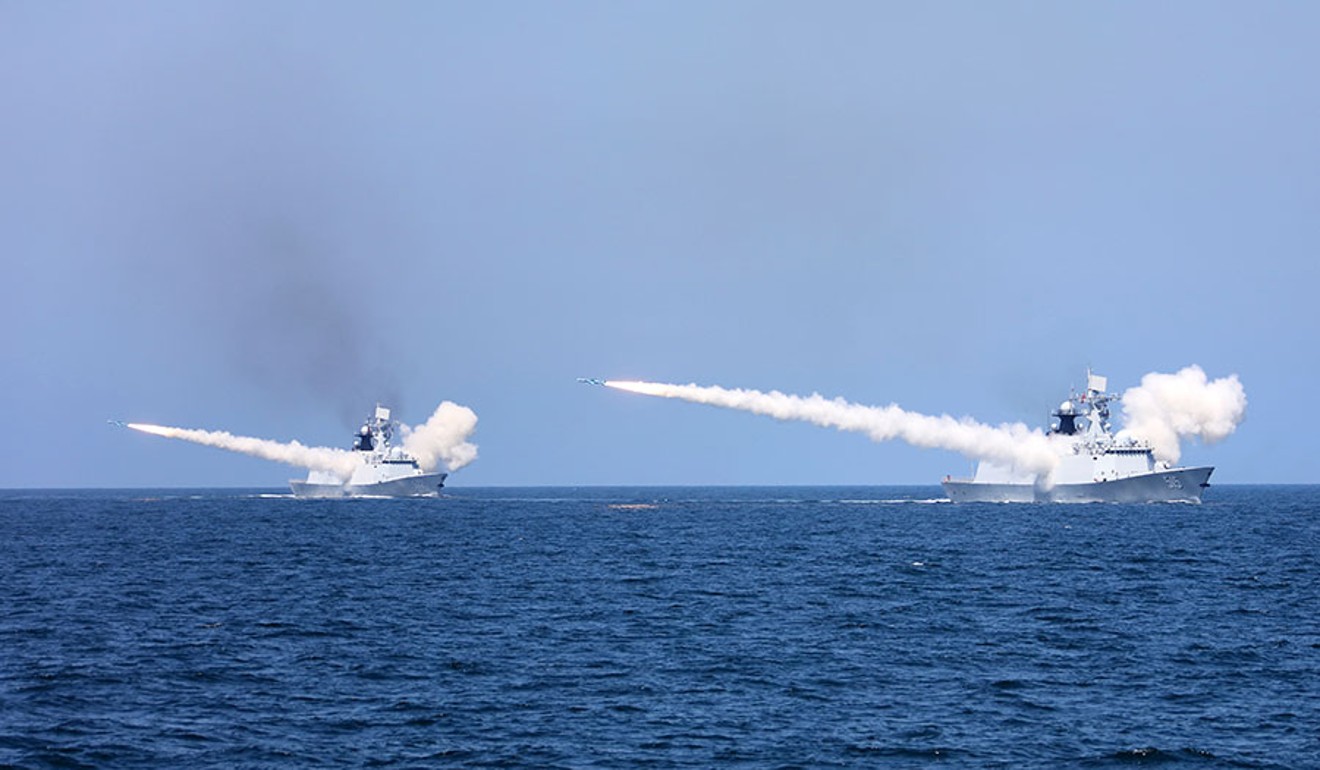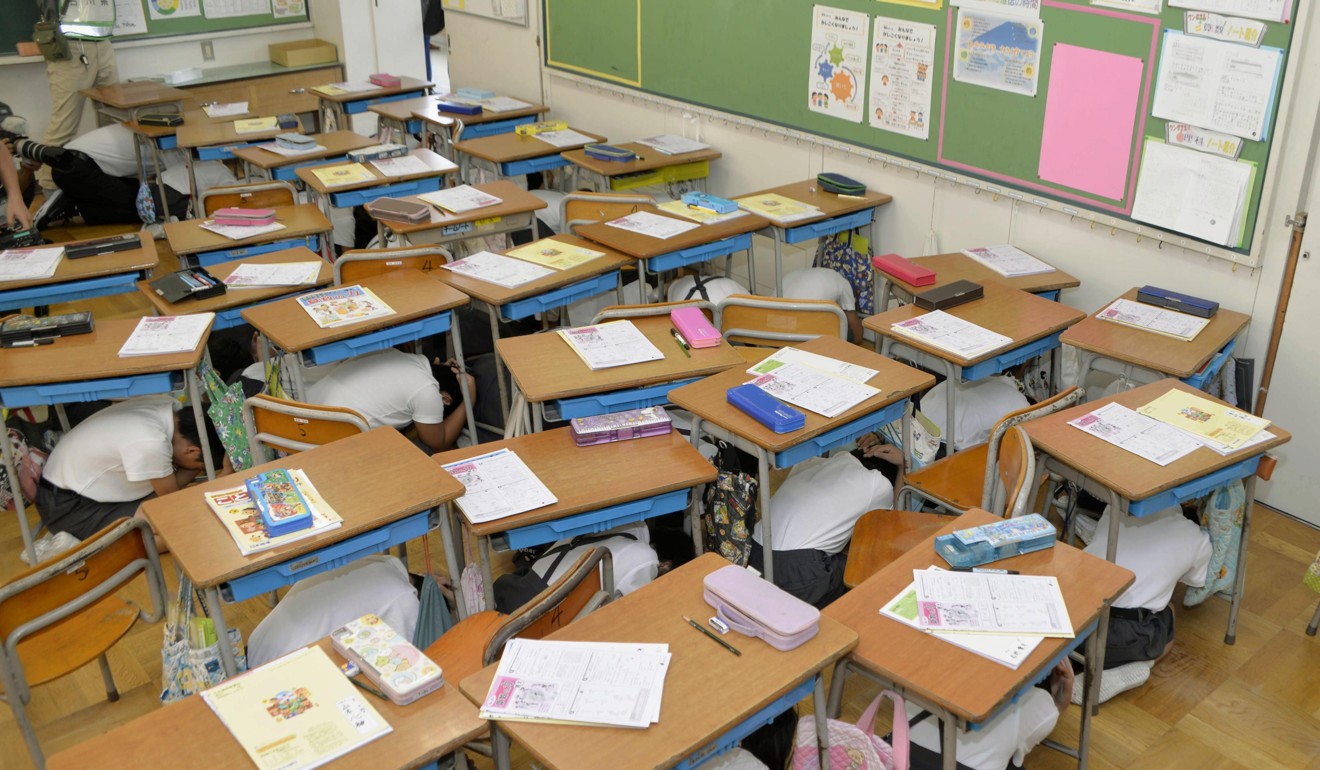
Will 2018 see war in North Korea? Chances soar after year of tumult
Beijing’s advisers have urged it to prepare for conflict as early as next year
Will 2018 be the year that war breaks out in North Korea? In 2017, the hermit state’s nuclear crisis escalated to its highest level in decades.
So far, there is no sign the crisis can be reversed.
In the concluding year, Pyongyang fired some 23 missiles in 16 tests. In September, it conducted its sixth and largest nuclear weapons test, notwithstanding the pressure of strict United Nations sanctions.
Punitive moves have included stronger measures by China, the North’s greatest trading partner and ostensible ally, amid loud calls by the US for Beijing to “do more” to curb North Korean aggression.
As the North Korean crisis tops the agenda in Sino-US relations, dealing with the issue has tested the two countries’ complex relationship.

Pushing for harsher sanctions against North Korea, US President Donald Trump fired off salvoes on Twitter accusing China of failing to help Washington contain Pyongyang’s aggression. The first UN Security Council sanctions under the Trump administration came in June with China’s help, targeting Chinese companies’ financial ties to North Korean missile and nuclear programmes.
Later that month, the US slapped deeper unilateral sanctions on Chinese individuals, a bank and companies. One of the targeted firms told the South China Morning Post that it no longer did business in North Korea.
China also supported a UN resolution that seeks to ban nearly 90 per cent of refined petroleum product exports to North Korea on Friday.
Beijing bristled at the pressure from Washington. Saying all sides needed to work towards a solution, China’s foreign ministry championed the dual suspension of North Korea’s nuclear programmes and US-South Korea military drills.
In February, China said it would suspend all coal shipments from the isolated kingdom, one of North Korea’s top exports to China. Chinese imports of North Korean goods continued to decline, causing Chinese traders along the border to feel the pinch.
Despite these measures, Pyongyang continued its series of missile tests, including the successful launch of its first intercontinental ballistic missile in July. Talk of military options increased, as analysts predicted developments would escalate “right to the brink” before China and the US could effectively come together.
China announced sweeping new sanctions against North Korea in August, expanding the restrictions to include iron, iron ore and seafood. The Post obtained customs data showing plummeting Chinese exports of electricity and oil and gas products to North Korea, even as food exports such as corn and bananas surged substantially. On the flip side, North Korea exported more garments to China as Beijing’s coal ban took its toll.
That was the date the UN Security Council imposed a new round of sanctions against Pyongyang over its repeated ballistic missile and nuclear tests.
Even so, several analysts doubted the moves would stop North Korea’s continued march towards having nuclear weapons.
Later in August, Beijing banned new joint ventures with North Korea, in line with UN sanctions. Analysts said China’s government was likely to support more sanctions on Pyongyang, including on crucial oil exports, although it would be careful not to push its historical ally to the point of regime collapse.
The chilling effect on China’s relationship with North Korea was palpable. China’s air force staged drills over the Yellow and East seas near the Korean peninsula. Meanwhile, analysts interpreted naval drills in the Yellow Sea as a “warning” to both North Korea and the US.

The Sino-North Korean Friendship Bridge across the Yalu River – a route for 80 per cent of trade between the countries – was suspended for what officials described as temporary maintenance activity. Tour operators stopped offering trips to North Korea.
Officials indicated China would end student exchanges to the reclusive state; and geologists warned their North Korean counterparts of consequences if an underground nuclear test site were to collapse.
In November, President Xi Jinping sent a top envoy, Song Tao, to visit North Korea.
But the diplomat’s apparent failure to meet with Kim was described by analysts as a “snub” to Beijing. Days later, Pyongyang conducted another missile test, after which China’s top diplomat Wang Yi spoke with “regret” about the increasing regional tensions.
As the US remains steadfast in its refusal to take military options off the table, its military has increased communications with its Chinese counterpart.

Uncertainty and concern continue to loom over the Korean peninsula. While Beijing has repeatedly said it will not allow war or chaos in the area, officials and scholars have quietly suggested the country should ready itself for a worst-case scenario.
Chinese analysts also acknowledge that Beijing is losing control over its neighbour and former ally.
Raising the alarm for many, residents of Jilin, a northeastern province bordering North Korea and Russia, were told on December 6 in a full-page newspaper announcement to prepare for nuclear disaster.

